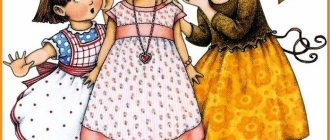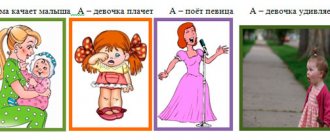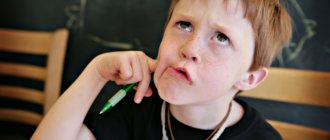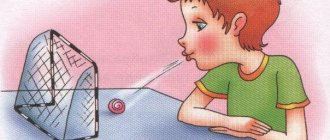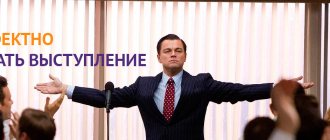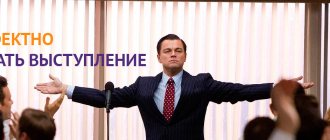Among other types, auditory memory occupies a special place, because from the very birth a child is surrounded by a variety of sounds. He receives the first information about the world around him through hearing, so good auditory perception gives children a correct understanding of objects and phenomena. However, although parents know about this, sometimes they do not pay attention to the problems with auditory memory that appear in their children. The main one is that children seem to listen, but do not hear the adult’s words (instructions, directions, explanations). Often preschoolers cannot concentrate on sound material, for example, when doing tasks in kindergarten, and schoolchildren cannot concentrate on writing dictations, reading educational texts, or solving oral problems. Sometimes they have difficulty remembering and reproducing information they have heard. All this creates certain difficulties in preschool development and school education. In order to eliminate such deficiencies in a timely manner, parents need to take seriously the development of auditory memory in their children at home.
How to properly develop auditory memory in children?
Despite the fact that in home studies, parents can use simpler and more accessible exercises for the development of auditory attention and memory, in contrast to developmental classes with specialists, they must certainly take into account the characteristics of the auditory development of children at different age stages. What do parents pay attention to when organizing activities at home?
- During its formation, auditory memory is based on the development of auditory attention. Therefore, it is necessary to organize classes with the child in the form of complex training, when both auditory memory and auditory attention are simultaneously exercised.
- The first thing you need to pay attention to is how developed phonemic awareness is in children, that is, the ability to distinguish and recognize words. If a child does not distinguish phonemes (word units), this prevents him from mastering vocabulary and inhibits the development of speech and auditory memory.
- It is also necessary to take into account that the development of hearing at different age stages has its own specific characteristics. For example, in the first year of life, auditory attention is actively developing. During this period, the child listens to the source of the sound, reacts to it with body movements, recognizes the voices of relatives and strangers, and responds emotionally to different intonations of the voice. If adults help the baby develop such reactions, then already in the second half of the year he learns to imitate the sounds he hears, tries to reproduce them with a certain intonation and rhythm. At an early age (2-3 years), the baby repeats the sounds he hears in words and actively uses them. Parents need to know all this in order to choose the right games and exercises for the development of auditory memory and attention. Middle and older preschoolers hear and then repeat sound rhythms according to a model or according to oral instructions.
- Experts note that in early childhood there is a close relationship between auditory and visual memory. They explain this by saying that to better assimilate information, the child uses not only hearing, but also vision. For example, memorizing words denoting any objects will go faster if the baby can see them. In the same way, auditory perception of the names of objects is easier when a preschooler's motor skills are involved. The adult names the object and gives the child the opportunity to act with it: roll, throw, play.
- To develop auditory memory in children, it is necessary to use a variety of means. Many techniques have been developed in the methodology, but the most important continues to be play, as the leading activity of preschoolers. And gaming techniques also help younger schoolchildren master many knowledge, skills, and abilities.
Phonemic hearing
The ability to distinguish phonemes without visualizing letters and determining the sound composition of a word is called phonemic awareness. This skill underlies children's learning to read and write.
When this skill is not developed, children are delayed in speech development because they do not hear their own articulation errors:
- confuses consonants paired by deafness-voicedness, deafness-voicedness;
- makes numerous grammatical errors in speech;
- skips syllables in words;
- does not use prepositions or confuses similar pairs (over-on, in-in);
- cannot correctly express a thought, incorrectly using consonant words (luk-luk, tom-dom).
As a result, by school age the number of problems increases. Children with undeveloped phonemic awareness have the following learning problems:
- dysgraphia;
- dyslexia;
- low reading and writing speed.
- errors in searching for words with the same root, phonetic analysis, and test forms for the last consonant.
To avoid difficulties at school age, it is important to promptly notice the underdevelopment of phonemic hearing and provide speech therapy assistance to a preschooler or schoolchild. The main place in correctional work with children on the development of speech hearing is occupied by games. There are a great many of them. They can be carried out not only by speech therapists, defectologists, kindergarten teachers, but also by parents.
On a note! It is more effective to conduct games for the development of phonemic hearing in preschoolers at the age of 5-6 years. This period, according to psychologists and teachers, is the most favorable for correcting auditory perception of speech.
Exciting games and exercises for developing auditory memory and attention
Experts have developed many games and exercises that will help parents organize home activities with their children to develop auditory attention and auditory memory.
Classic games have proven themselves in educational activities, but you can diversify them with various variations. Much depends on the creativity, interest of parents, age and psychological characteristics of the kids.
What games and exercises do kids need?
Adults should actively involve young children in games for auditory perception and subsequent reproduction of the information received. Taking into account the age characteristics of children, it is necessary to organize support for their motor skills and visual perception. Therefore, all games and exercises must be carried out in a comprehensive manner, solving problems of auditory, visual, and motor memory. In order to interest children, you can use nursery rhymes, rhymes, and songs. After the lesson, it is necessary to encourage the child and encourage him to play independently.
"Guess what's playing?"
The game actively develops auditory memory and attention by relying on visual images. An adult examines musical toys together with a child. For this fun, you can take all the toys you can find in the house: drum, bell, xylophone, pipe, tambourine, tumbler, rattle. It’s good if all game actions are accompanied by funny rhymes and nursery rhymes:
The most fun toy of all is the Painted Rattle Tink, tinkle...
Tram-there-there, tram-there-there, Drum the drum. It's very loud, I know it myself...
How the bear went to dance, sing and hit the tambourine: Boom! Boom! Tram - ta - ry! Fly away, mosquitoes!
Ding-dong - xylophone, A gentle chime is heard. I hit the blocks, ding-dong, I create ringing melodies...
"Musical Echo"
An exercise to develop auditory memory for preschool children, develops the ability to understand and repeat rhythm. It can be used for children of different preschool ages; the difference will only be in the complexity of the rhythmic actions. The adult taps out a very simple rhythm for younger preschoolers, for example, two short beats, one long; for older preschoolers, you can offer the rhythm of a melody. The child must listen carefully and repeat. To maintain interest, it is good to offer two or more children a competition to see who can complete the task faster and more correctly.
“Draw what you heard?”
The exercise is aimed at developing auditory attention and perception, the ability to remember, and reproduce what is heard. The complex develops motor sensations. The adult invites the preschooler to listen to the poetic lines, remember all the images and sketch them from memory. For kids, all objects depicted in poems should be familiar and easy to depict. You can maintain interest in the task if you hang your child’s drawings on the wall or create an album with him.
Poem by A. Akhundova:
Hot air balloon, hot air balloon Breaks out of your hands. Naughty, naughty - Suddenly flies up to the ceiling. I need to catch him and tie him by the tail.
Or a poem by S. Marshak:
My cheerful, ringing ball Where did you start galloping, Yellow, red, blue, I can’t keep up with you.
"Mouse"
Fun helps develop auditory perception, attention, and teaches you to recognize by ear the tempo, timbre, and rhythm of sounds. The adult invites the child to become a “mouse” that walks around the room to a certain rhythm. When the tambourine sounds quietly and slowly, the mouse goes out for a walk; as soon as the tambourine sounds loud and fast, the mouse hides, because the cat is approaching. In this fun, an adult can show creativity and invite the child to play with different scenes: sun - rain, fungus - boy with a basket, butterfly - net.
“One word, two words - there will be a song”
This game is a lot of fun for children, but it requires that children have at least a little experience. You can offer it to kids and make it more complicated as the child learns children's songs. Middle school children can easily take part in this fun. The adult makes a selection of familiar songs and lets the child listen to them. He must guess what song was played. To maintain interest, the parent sings a familiar verse with the baby. For middle and older preschoolers, it will be interesting to introduce a competitive element into the game; whoever guesses the most melodies wins a prize. The fun is also good for family leisure. On a walk or in the country, you can play this game with voice accompaniment.
Games and exercises for middle and older preschoolers
In middle and older preschool age, auditory memory exercises become more complex, as the tasks of working with children become more complex. For example, much attention is paid to the formation of their phonemic hearing, the good development of which is necessary when learning to read and write. An older preschooler should be able not only to perceive sounds, but also to distinguish them according to their sound composition, according to individual characteristics (hardness - softness, sonority - deafness). Children need to learn to voluntarily concentrate on the perceived text and understand the task by ear. Parents are required to create a home environment that is aimed at developing auditory perception, attention and memory. These are not only special games and exercises, but also the whole way of life of the family.
- The speech and listening of an adult should be an example for the child to follow: parents themselves must observe the intonation expressiveness of speech, teach the ability to listen to each other, not shout when communicating, draw children’s attention to the beauty of natural sounds, distinguishing them by pitch, timbre, and rhythm.
- Eliminating irritating noise in the house, which distracts children's attention, leads to hearing strain.
- Organize a variety of leisure activities for preschool children, visiting with them musical theater, children's theater performances with musical accompaniment, and playing games in the family circle - dramatizations based on folk tales, nursery rhymes, and rhymes.
- Create a developing subject environment by offering children educational (didactic) games, listening to audio cassettes with songs and fairy tales, and replenishing the play corner with musical toys: flute, children's piano, harmonica.
- If possible, offer your child to attend a music or choir club.
What games and exercises can parents do with middle and older preschoolers to develop auditory attention? Experts offer both classic and modern games for training to develop auditory memory and attention.
“What cars are in the garage?”
The game develops auditory perception, teaches to distinguish sounds by timbre and pitch, and helps several children spend their leisure time in an interesting way. An adult invites the children to build a garage that can accommodate all the cars in the play area. The presenter negotiates with the players what sound signals the cars will use in different compartments. Compartments can be distinguished by color, for example, in red – cars with a high sound (small “bi-bi” cars), in blue – with a loud and low sound (professional cars: fire truck, truck). Each child must remember his signal and try to reproduce it. The plots of the game can be different: “all the cars go about their business”, “they let a fire truck pass”, “trucks are carrying cargo to a construction site”, “buses are taking children on an excursion”.
“Remember the color and color it”
Didactic game for the development of auditory perception, correlating the visual image with the auditory one. The adult invites the preschooler to listen carefully to the poem and remember what colors were indicated there, so that he can then color the corresponding picture. Parents themselves can compose similar funny rhymes for their children.
There is a green house in the garden, a red roof on it, a red dog on guard. On the blue fence, the little sparrows are sitting together, chirping bravely: “They have finally evaded the strict dog, We can rest, brother, and take a little nap!”
"Compositions"
Adults and preschoolers can come up with similar exercises themselves. For example, to compose poetic lines on any subject:
- “the rain is knocking on the roof, hush, children, hush”;
- “We’re decorating the Christmas tree, bringing the holiday closer”;
- “Mom is working, daughter is working, they are planting flowers in the flowerbed.”
When small poems are invented and repeated, invite the child to reproduce them. The tasks can be used while walking with children or family leisure time in nature. It is good to use competitive elements: who can come up with and remember the most lines of poetry; incentive prizes.
“What’s extra?”
The exercise is aimed at developing auditory attention and classifying objects. The adult reads the poem slowly, inviting the preschool child to listen to it carefully, name all the objects with a general word, and find the extra concept.
The mugs are exactly in a row, All the plates are shining, There is a saucepan on the stove, The frying pan is clean! The ball lies near the spoons. It shines like new! All the dishes were washed, nothing was missed.
Here is a large glass teapot. Very important, like a boss. Here are the porcelain cups, very large, poor things. Here are the porcelain saucers, just knock and they will break. Here are the silver spoons, the head on a thin stem. And here is the shaggy dog. He brought us the dishes.
Experts recommend conducting special auditory exercises with older preschool children that help them perceive and reproduce rhythm, improve various types of memory, voluntary attention, and motor activity in children.
Special exercises for the development of auditory attention and memory
"Listen and repeat"
An adult claps his hands or taps a certain rhythm with a ball, and the preschool child repeats it without errors. You need to start with fairly simple tasks, gradually moving on to more complex ones. Alternatively, at an older preschool age, a child may already act according to the instructions: “make three short and two long claps.”
"Play it like me"
Preschool children, with the help of a children's musical toy, repeat the rhythmic pattern set by the adult.
“Walking and running to a tambourine, to a counting rhyme”
The adult agrees with the players what movements to perform to this or that music, then hits the tambourine with different rhythm, tempo, and volume. Preschool children must perceive sounds by ear and act in accordance with assignments. You can use a series of poems, the main thing is that a certain rhythm is observed, which allows children to train auditory attention and motor-motor activity in combination.
Barely, barely, barely The carousel spun, And then, then, then, Everyone ran, ran, ran. Hush, hush, don't circle, stop the carousel. One-two, one-two. The game is over!
"Musical evening"
Can be organized as a family leisure activity. Participants are given two cards: one bright for cheerful, upbeat music, the other in pastel colors for a sad melody. The presenter offers to listen carefully to the recordings of musical works and show the corresponding card. The one who was the most attentive wins.
As a more difficult option, children are asked to guess which musical instrument sounded in the melody they heard.
"Poetry Evening"
A similar exercise is carried out with a series of poems. The adult begins to read a work familiar to the child, who must continue it. The player who never makes a mistake wins. This exercise not only trains auditory memory, but also makes it possible to expand your vocabulary, teaches you to think, and awakens your imagination.
Important: dear adults, with the help of accessible and exciting games and exercises, you can train your child’s attention and auditory memory, and develop thought processes. Such training will help you prepare your preschooler for success in school.
